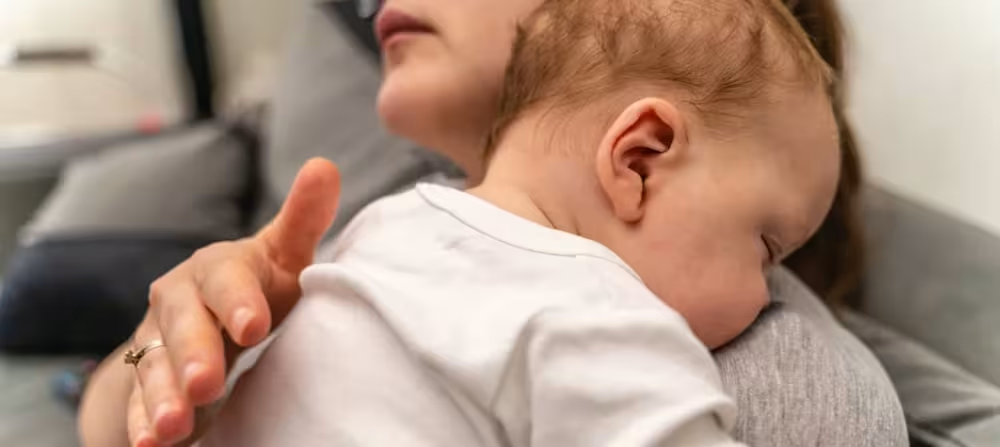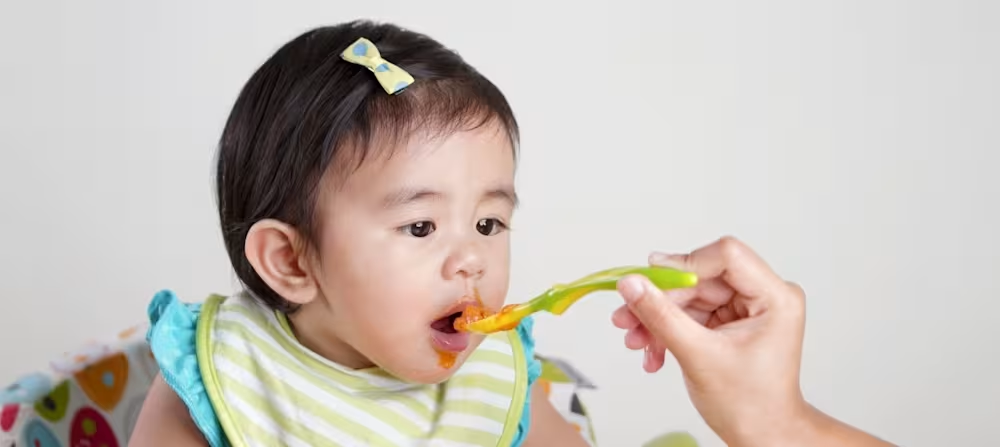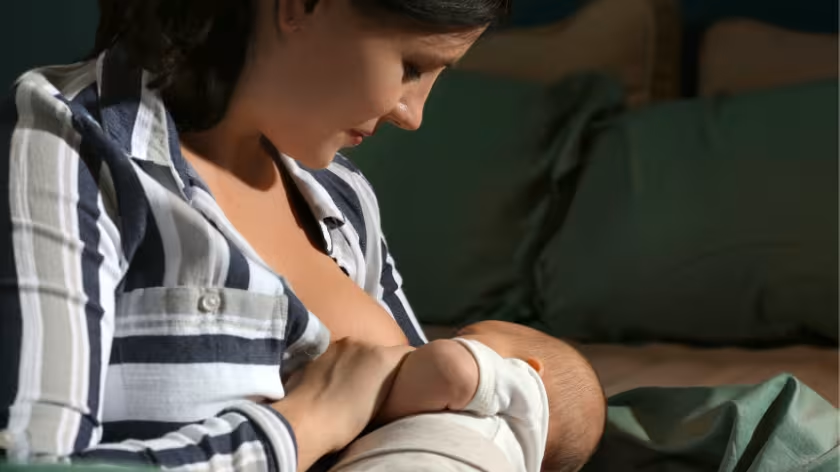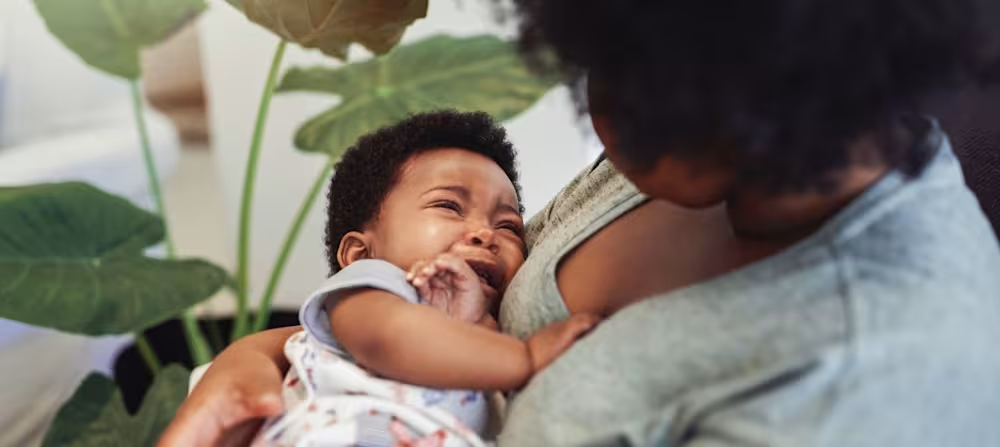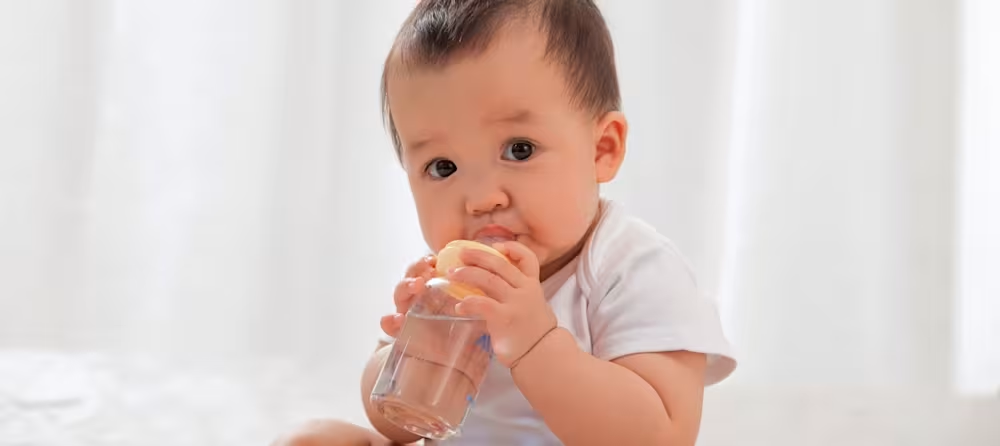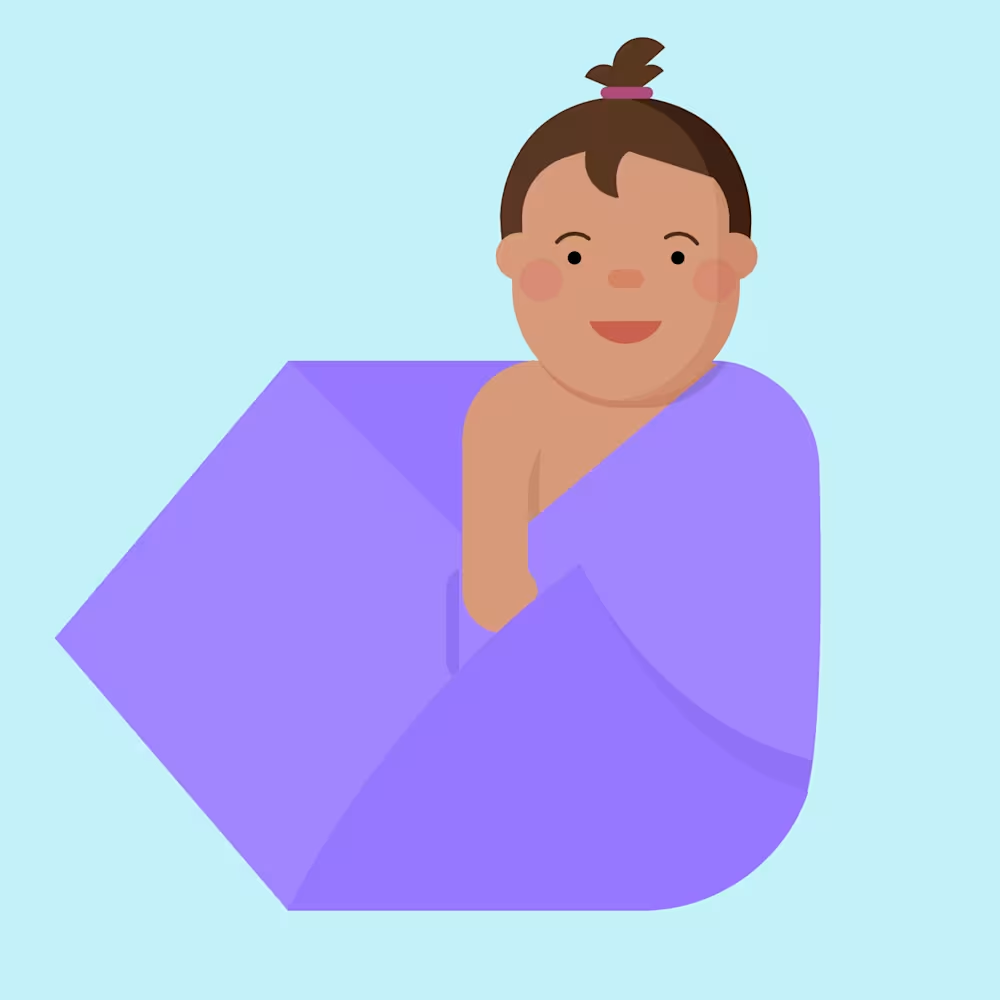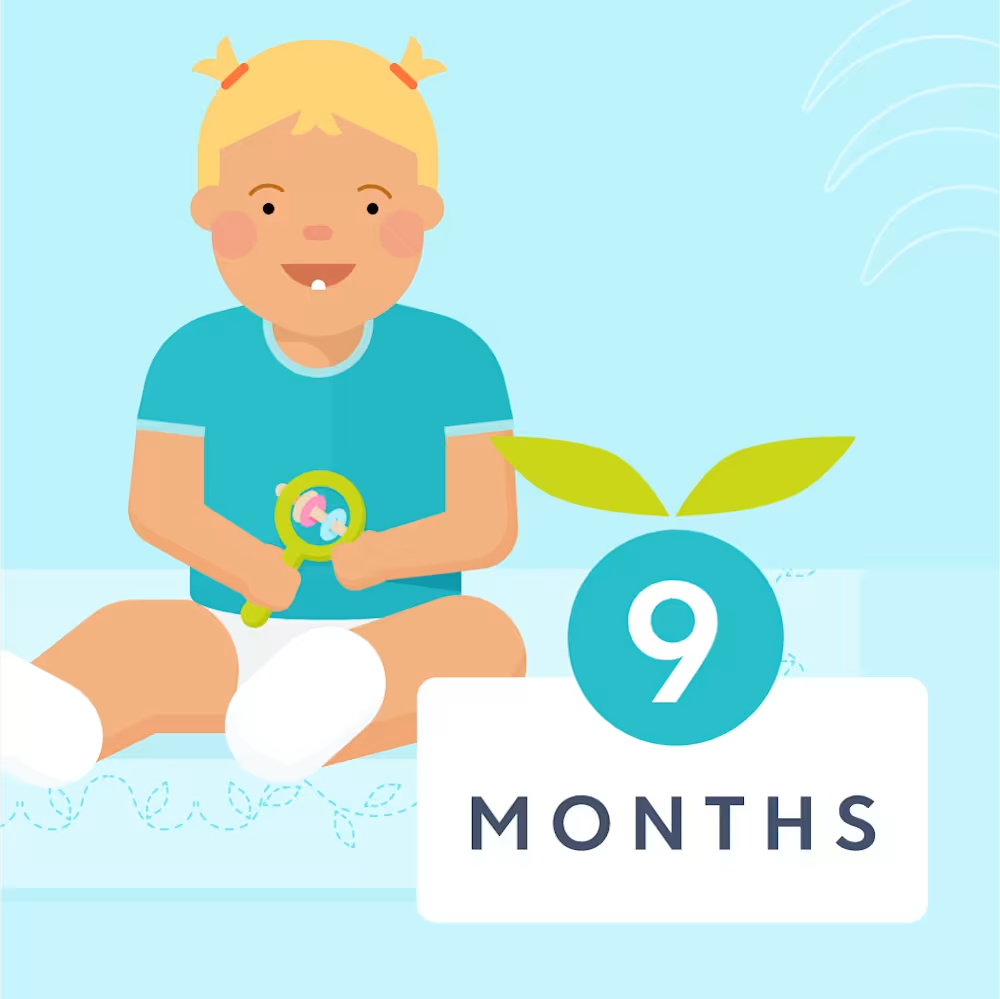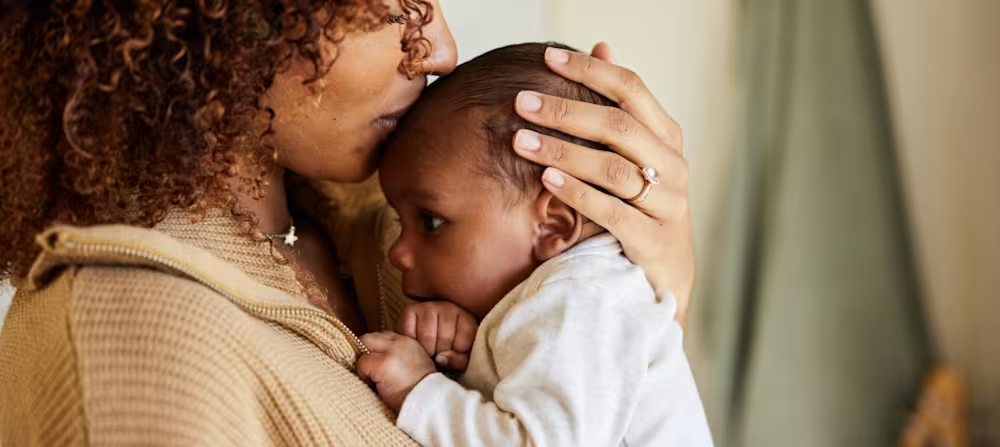How to burp a baby: Signs a newborn needs to burp
Updated Jan 02, 2026

Some babies need minimal help to burp! However, some need a little more support after feeding to bring up any air and avoid trapped gas and wind. There’s no “right” way to burp a baby and there are a few different techniques. Burping needs to feel comfortable; you and your baby may prefer one technique over another.
Why it’s important to burp a baby
Burping your baby is an important part of the feeding routine. and breathing simultaneously is difficult and babies can often swallow air. This air needs to make its way up and out (by burping) or through (by passing gas/wind/farting). If it doesn’t pass easily, it may become trapped, causing .
Any steps to take when a baby is sleeping
Make sure you burp your baby after their last feed and before placing them down to sleep, even if they’ve fallen asleep in your arms. It’s much easier for the burp to come up if they're held upright with their head above their stomach.
If you feed at night, always make time to burp after the feed and consider it part of the usual feeding routine. If you place your baby down and they start to show signs of discomfort like arching their back, clenching their fists, or , then pick them back up and try to burp them again. Have a muslin cloth or burping cloth on hand for any spit up, as you don’t want to change those night clothes!
How to know when it’s time to burp
Sign 1: Feed has finished
Generally, a few minutes spent burping your baby after every feed should do it. Some babies need a little longer to work the air back up, but like everything, it takes practice, getting to know your baby and what level of help they need from you.
Sign 2: Discomfort
Stop for a burping break if they are showing discomfort during the feed. You may notice signs such as pulling away, squirming, or making funny faces.
Sign 3: Prone to gassiness
You’ve got a gassy baby: If your baby is prone to gas pains or suffers from reflux then you may want to burp during the feed to allow for another opportunity to release air.
Positions and techniques for burping a baby
For all these techniques you’ll be supporting your baby’s head and neck while keeping their back straight. Always make sure you are holding their chin rather than their throat.
Technique 1: Over your shoulder.
Have your baby face you, and then bring them towards you so their chin rests on your shoulder. Make sure their throat is clear. Pat or rub their back gently. Some caregivers find walking around or sitting in a rocking chair at the same time helps.
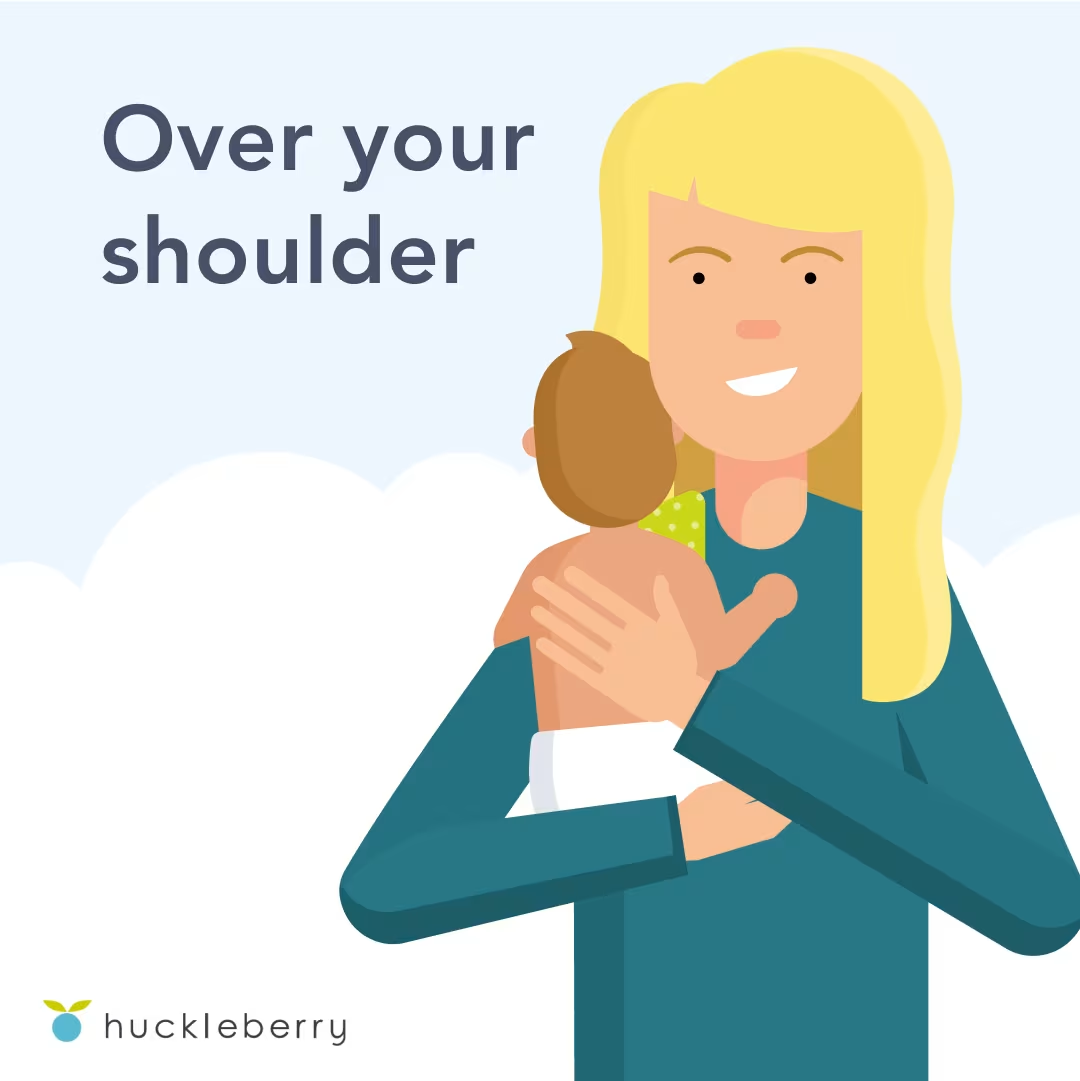
Technique 2: Sitting on your lap.
Lean your baby gently forwards (leaning slightly) while they’re on your lap. With one free hand, support their chin and make sure you keep their throat clear. With the other free hand, gently pat or rub their back.
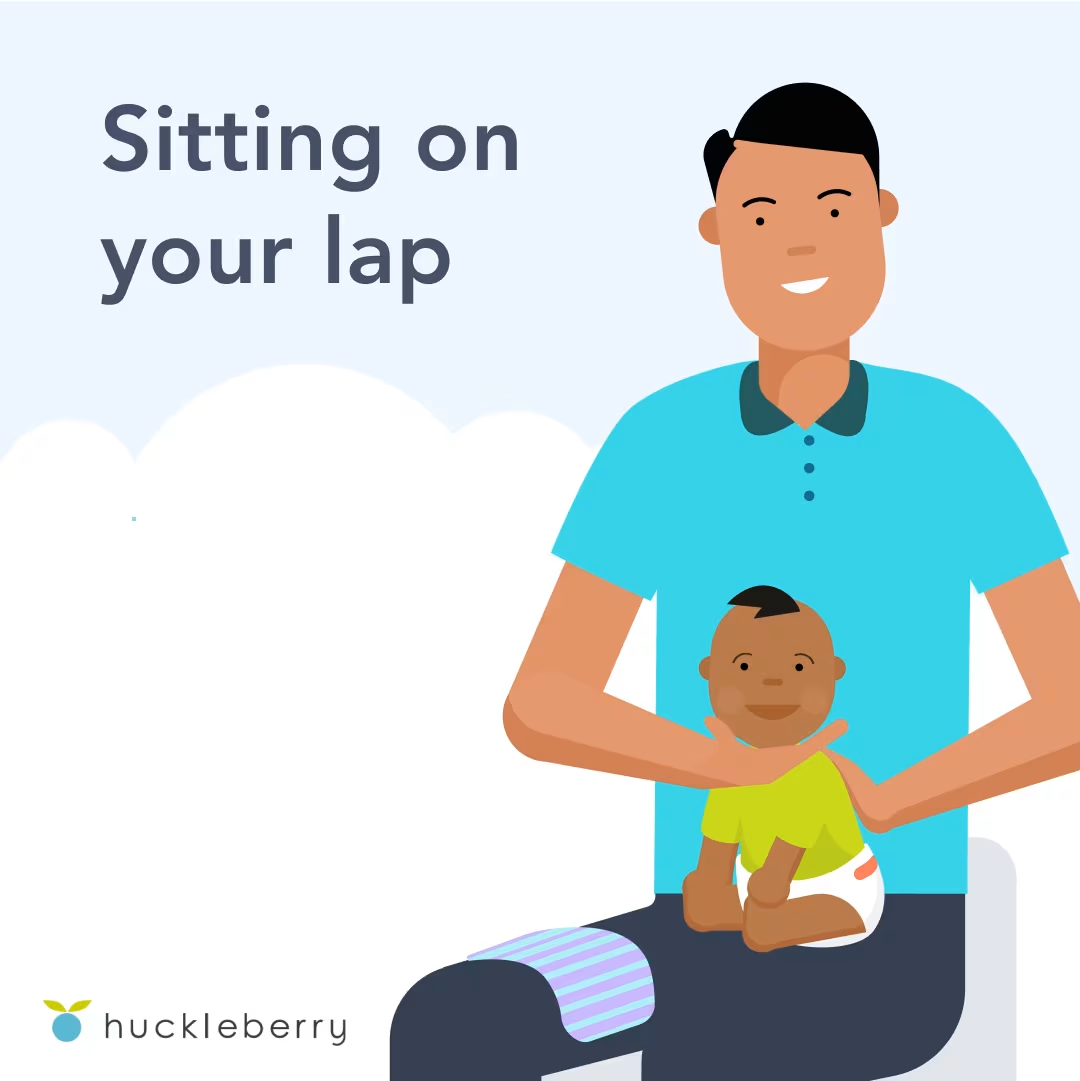
Technique 3: Lying across your lap.
Lie your baby across your lap making sure there's no pressure on their throat. Use your free hand to gently rub or pat their back.
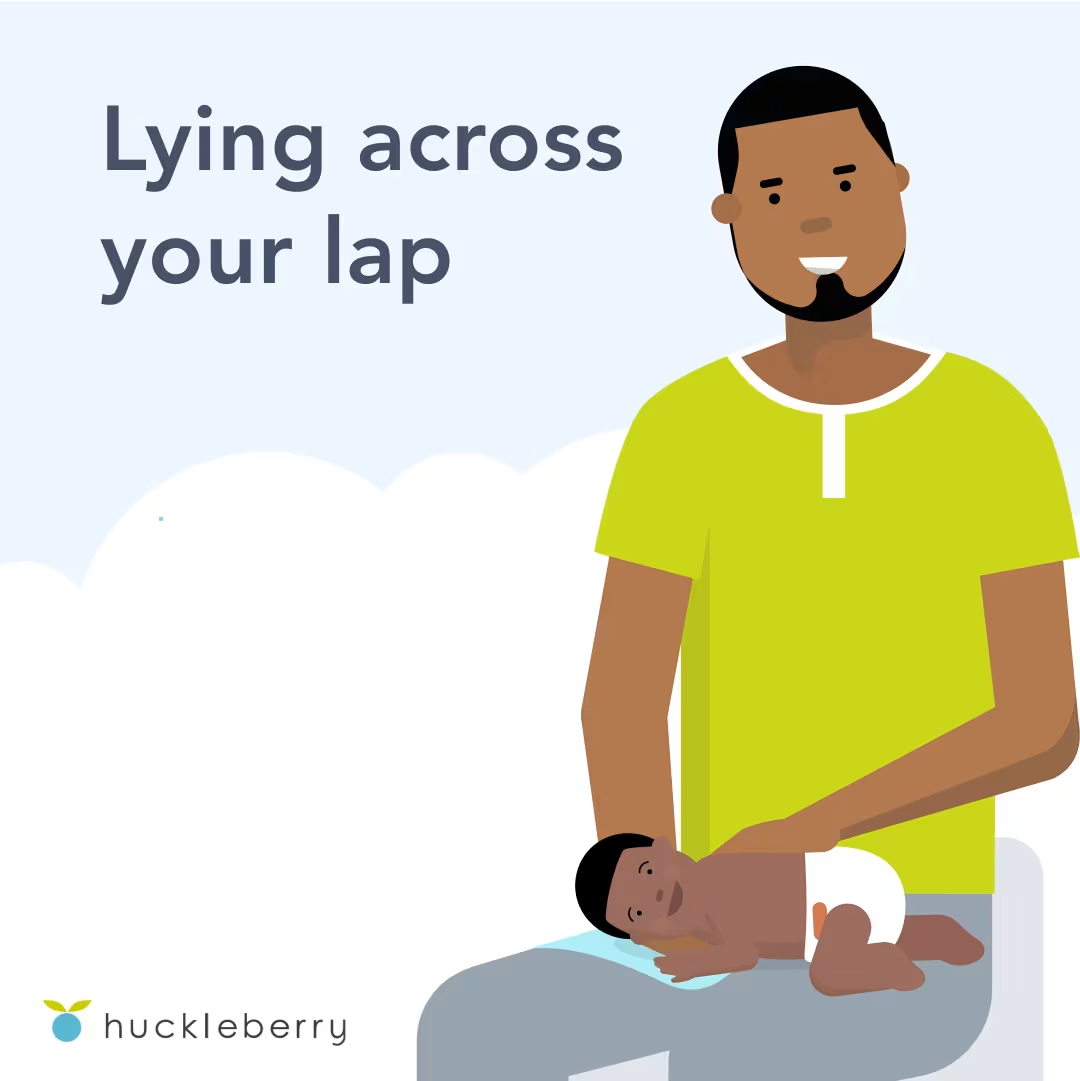
4 tips and tricks to burping a baby
Here are a few burping newborn tips you can try:
Tip 1: Burp briefly after each feed
It’s not a marathon! Just a few minutes of burping after each feed should do it.
Tip 2: Watch for spit up
Have a muslin cloth or burp cloth on hand! It’s common for babies to spit up a little when being burped. This is very normal.
Tip 3: Try an alternative method
If your baby doesn’t burp on the first attempt, try a different technique to see if that helps.
Tip 4: Burp more often with regular feeding breaks
If your baby is very gassy, suffers from reflux, or spits up a lot, you may choose to burp more often. Take regular breaks from feeding. For example, you may want to pause after every couple of ounces or when switching breasts.
What if my baby won't burp after feeding?
If your baby won't burp after feeding, there are a few steps you can take to address the situation:
Try different techniques: Keep in mind that every baby is different. If one burping technique isn't working, consider trying another one that is listed above!
Be patient: Some babies may take longer to burp than others. It's important to be patient and give your baby the time they need.
Check for discomfort: If your baby seems uncomfortable or fussy after a feed, they might still have trapped air that needs to be released. Your little one might benefit from additional burping attempts.
While there's no "right" way to burp a baby, finding a technique that works best for you and your little one is key. Be attentive to your baby's cues, and don't hesitate to seek advice from a healthcare professional if you have concerns.
Takeaway
Burping a baby is important to release swallowed air and prevent discomfort.
Burp your baby after each feeding, especially before sleep, to aid in digestion.
Signs to burp include finishing a feed, baby's discomfort, and gassiness.
Techniques for burping include over-the-shoulder, sitting on your lap, and lying across your lap.
Tips include burping for a few minutes, having a cloth for spit-up, trying different techniques, and burping more often for gassy or reflux-prone babies.
Share article:
Note: The content on this site is for informational purposes only and should not replace medical advice from your doctor, pediatrician, or medical professional. If you have questions or concerns, you should contact a medical professional.
Share article:
